This week’s consumer sentiment survey from Westpac revealed that Australian house price expectations are at their highest level in 15 years, following a 2.1% rise in October.
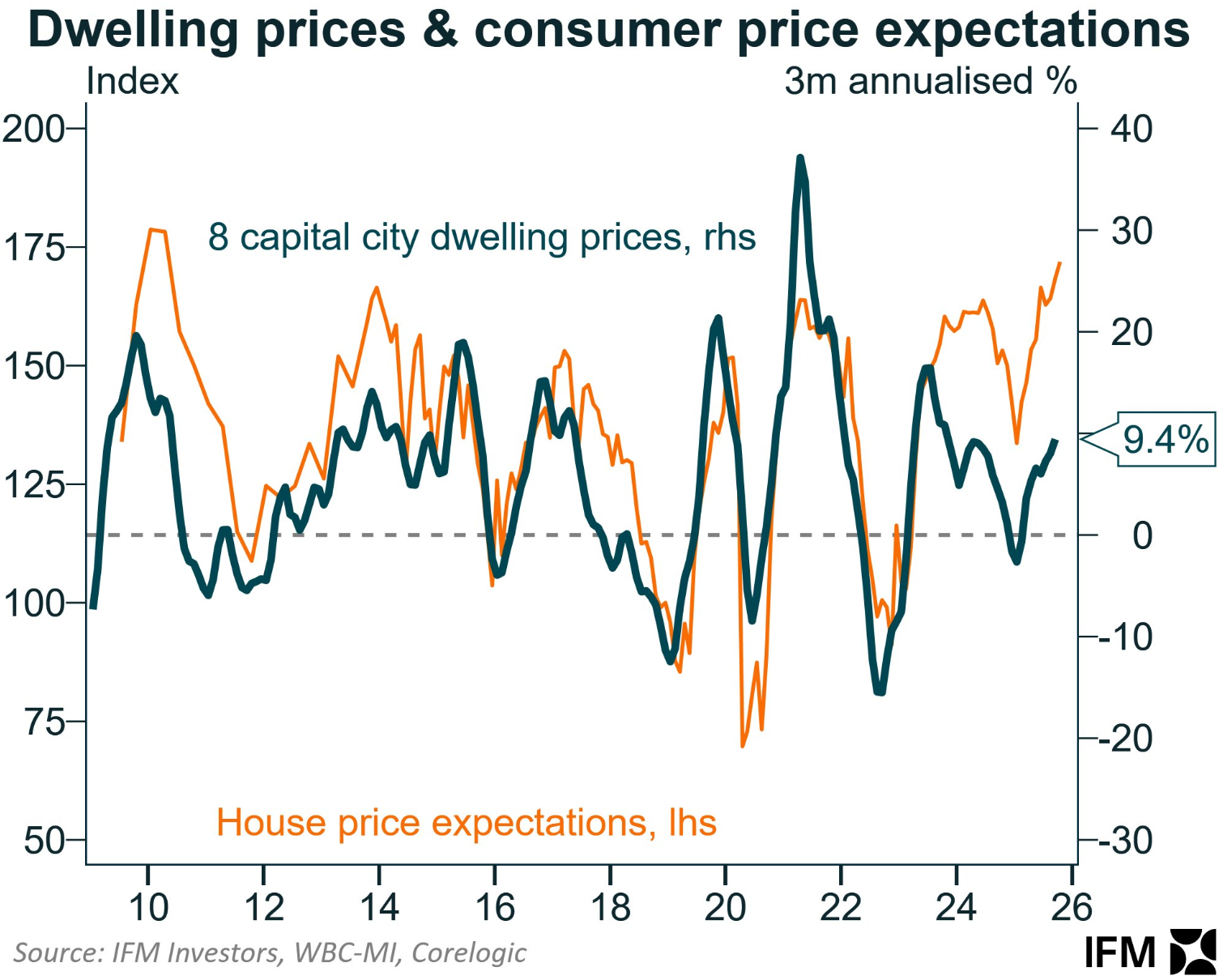
Westpac also noted that “expectations are stronger still in Queensland (184)”.
Queensland’s housing market has boomed following the pandemic to become the nation’s second most expensive jurisdiction after New South Wales.
According to Cotality, Brisbane dwelling values have soared by 80.1% over the past five years, whereas regional Queensland’s dwelling values have lifted by 76.9%. Both have easily exceeded the national average value growth.
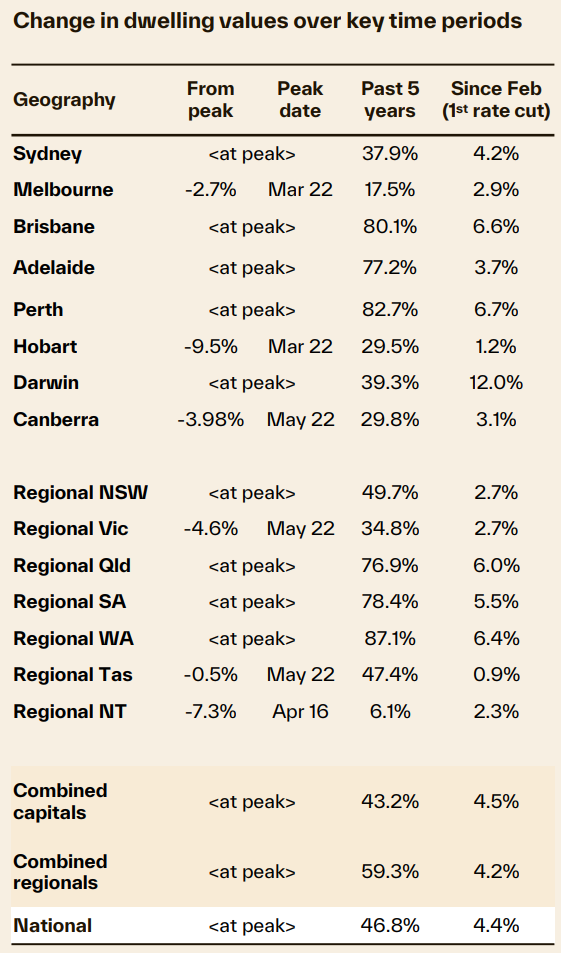
Source: Cotality
Indeed, the following chart derived from PropTrack data shows the stark divergence in Brisbane’s dwelling value growth versus the combined capital city average:
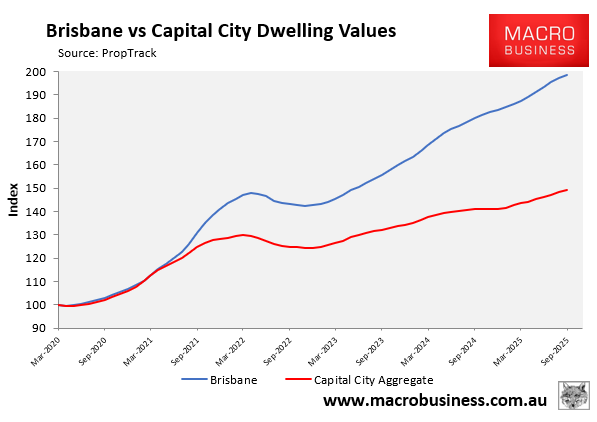
According to PropTrack, Brisbane dwelling values have risen by 98% since the start of the pandemic in March 2020, double the 49% increase across the combined capital cities.
Cotality’s daily dwelling values index shows that after rising by 6.6% over the first nine months of 2025, Brisbane home values are rising at a monthly pace of just over 1%, slightly faster than the combined capital cities.
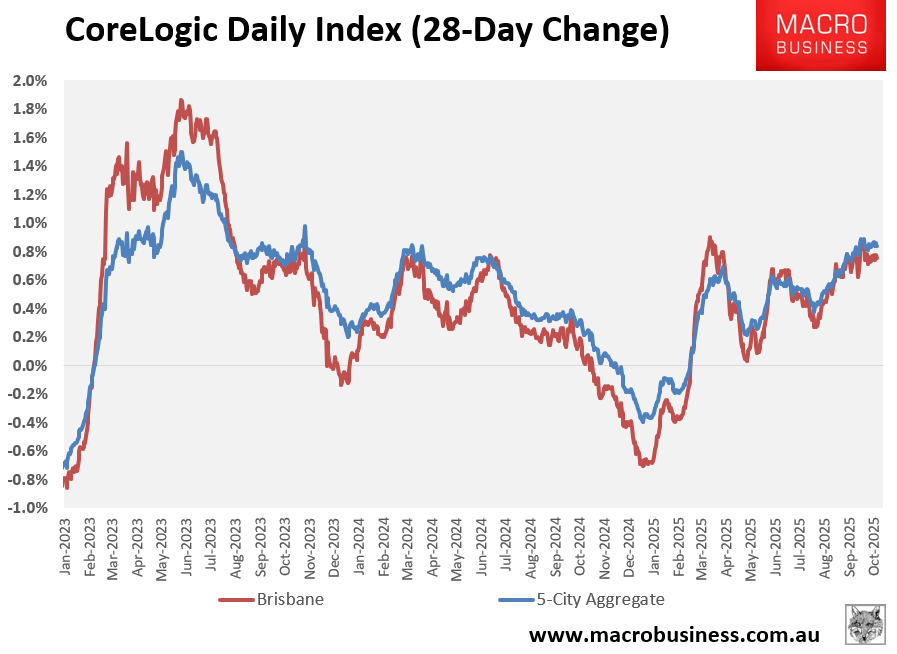
The ongoing rise in Brisbane home values comes amid a dearth of listings, which have declined by 18.7% over the past year, according to Cotality:
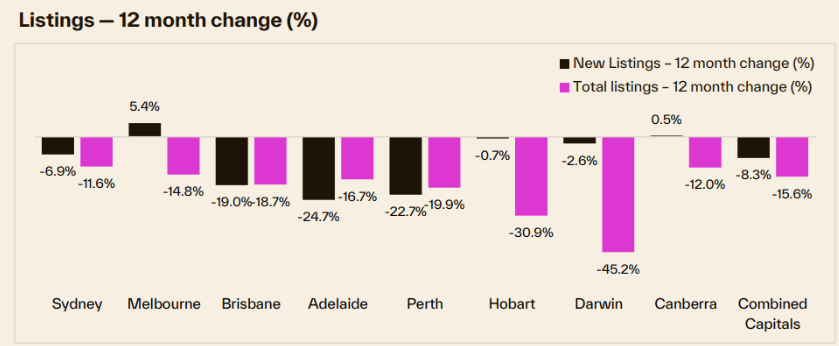
Source: Cotality
Therefore, FOMO (‘fear of missing out’) appears to be in full swing across Brisbane, with first-home buyers and investors, in particular, competing hard for a limited amount of stock.
Property investment group Benchmark Capital expects the house price party to continue in Brisbane in the lead up to the 2032 Olympics.
“While not every suburb will boom, areas connected to Olympic infrastructure, transport upgrades and urban renewal zones are likely to outperform”, Benchmark Capital chief executive Fawaz Sankari said.
“You can expect Brisbane to outperform both the national average and several other capitals over the next decade”, he said.
REA Group senior economist Anne Flaherty added that the Olympics will transform Brisbane into an international city, as well as exacerbate housing shortages as resources are diverted into infrastructure investment.
“The most obvious reason is that the Olympics is going to uplift Brisbane, there’s going to be a lot of spending that improves the infrastructure and appearance of Brisbane”, she said.
“Secondly, it increases the profile of Brisbane, not just across Australia but also internationally”.
“You are going to get more workers working on projects related to the Olympics, which will leave fewer for the home construction industry, and it’s very likely to increase wages in the construction industry as well”, Flaherty said.
The following chart compares Brisbane’s median house price (sourced from Domain) against the population-weighted average capital city house price:
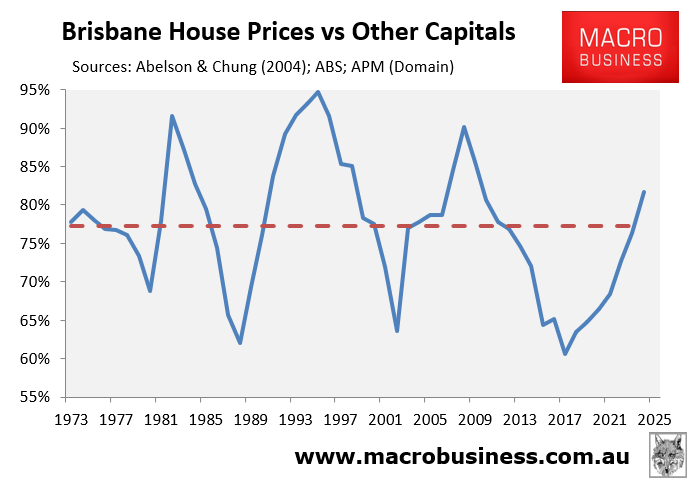
Domain’s data suggests that Brisbane house prices are relatively overvalued against the other capital cities compared to historical experience; although have further to run.
However, both PropTrack and Cotality list Brisbane’s median house prices at the same level as the combined capital city average and the second most expensive in Australia, suggesting greater overvaluation.

Regardless, the data suggests that Brisbane dwelling values are relatively overvalued following five years of extraordinary growth, and FOMO will likely drive valuations higher still.

